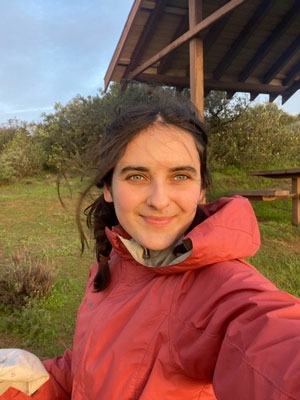Meyer Grant Recipients

Emma Tzotschew
2023
Outside of the cultural imagination as a city escape, as something to have and hold temporarily (thanks to policies that prevent vehicular traffic on the island) Catalina also plays an important role in the education of most young Californians—at least those that attend public school. While other states send their fourth graders to the beach or the mountains, whichever may be more exotic, to learn about ecosystems and the like, Californians are taken to Catalina. For the young, it is supposed to be a study of a relatively untouched, isolated landscape that is, according to one Californian friend, to be digested alongside instruction of indigenous history via Scott O’Dell’s YA novel Island of the Blue Dolphins.
Such a setting, imbued with the tensions symptomatic of commodification, preservation, and interpretation of history, begged further reading, questioning, and a visit. However, the visit itself could not be solely for the curious enjoyment of the landscape and its history. In examining my own work, the themes and motifs of family, negotiation of familial gender politics and complicated relationships, landscape, and memory stand out. While Catalina was a new landscape to explore, I also explored the landscapes of emotion and memory, with attention to the ways in which familial tension, understanding, and memory are then mediated through the physical landscape. I invited my brother along with me for the purpose of feeling safe and, more importantly, I wanted to renegotiate our sibling relationship through the landscape. It had suffered via the spatial and temporal processes of growing up and redefining home.
